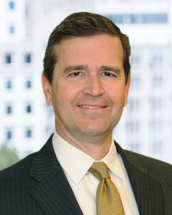The growing COVID-19 crisis has led to an increasing number of states, counties and cities requesting or demanding that businesses close and people remain in place. That list grows by the day, and presents a challenge to businesses operating in multiple states. The article below summarizes some of the key questions for businesses considering a closure order and evaluating their response.
Where have closures been required?
In short, nearly everywhere. States, counties and cities nationwide have announced various levels of business closures. New York, Connecticut, New Jersey, Illinois, North Carolina, Pennsylvania, Ohio, Massachusetts, Washington and Michigan have ordered or issued statewide guidance regarding closures. Florida Governor Ron DeSantis has also indicated a similar executive order is likely forthcoming. Cities in Texas, including Austin, Dallas and Houston, as well as the counties they reside in, have also ordered closures, while Texas Governor Greg Abbott has indicated a statewide order is unlikely. The City of Philadelphia has issued its own closure guidance, despite the statewide guidance issued the same day. Seven counties in the Bay Area, including San Francisco, have issued shelter-in-place orders resulting in broader closures.
(For more on this, click to read a recent client alert issued by Baker McKenzie’s Employment and Compensation Group: Shelter-In-Place Orders Take Effect In The San Francisco Bay Area.)
What is required to close?
Generally speaking, businesses that are not considered essential. Restaurants and bars (including night clubs, microbreweries, distilleries and wineries) have been targeted by nearly every closure order. Orders in Los Angeles, the Bay Area, Denver, Houston, Austin, Dallas, Illinois, New York, New Jersey and Pennsylvania, among others, have closed dining rooms and limited food services to delivery, drive-thru or take-out. Gyms, fitness centers, movie theaters, performance venues, sporting events and entertainment centers have also been subjected to closure.
Some cities have closed businesses or facilities based on the amount of people they may attract. For example, the City of Austin and Travis County have banned any gatherings of 10 or more people, whether public or private, in a single space. Illinois, New York, New Jersey and Connecticut have similarly banned gatherings of 50 or more people. This approach typically excludes office buildings, schools or hotels, because people may gather in separate rooms within a building in groups of less than 10 or 50.
These orders have exempted “essential” businesses, such as grocery stores, pharmacies, hospitals and medical providers, as well as critical infrastructure operators (such as water, internet, airports, etc.) and infrastructure construction projects (highways, housing, etc.). These exempt categories have generally been broadly construed – Austin considers anything selling food products and household staples to be a grocery store; San Francisco’s definition includes farmer’s markets, convenience stores, and any establishment carrying pet supplies, fresh meat and produce, or household consumer goods such as cleaning and personal care products. Philadelphia includes stores focused on technology that could enable working from home, such as computers, telecommunications and other electronics.
The “shelter-in-place” order from the Bay Area counties allows for people to leave their homes only to operate “essential businesses,” resulting in possibly the most widespread closures in the nation for companies that cannot operate remotely. These “essential businesses” include those businesses listed above, as well as media service providers, gas stations, auto-supply or repair facilities, banks and related financial institutions, hardware stores, mailing and shipping providers, laundromats and dry cleaners, and businesses that provide supplies for people working from home. Pharmaceutical and biotechnology companies, private transportation providers for a designated list of “essential” activities, and plumbers, electricians and exterminators are also exempt. Additionally, businesses that supply any of these essential businesses with support or supplies are also considered essential, which is a potentially broad classification.
What modifications are in place for businesses that remain open?
How long do the closings last?
How are negative effects on employees being addressed?
The House passed the Families First Coronavirus Response Act on March 14. If passed by the Senate and signed by President Trump, employees who miss work because of COVID-19 would be eligible for two weeks of paid sick leave at 100% of their normal salary, up to USD 511 per day. Employees who lose child care due to school or day-care closures would also be eligible for an additional 10 weeks of paid family and medical leave at 67% of their normal pay, up to USD 200 per day. The Act would apply to companies under 500 employees, and those with less than 50 could apply for an exemption from the Department of Labor. The bill also calls for both a tax credit and direct reimbursement for employers to help offset these costs.
For more employment law-related COVID-19 resources, see Baker McKenzie’s Coronavirus Resource Center, which includes alerts focusing on employment compensation issues in the US and internationally.
What is the authority for this, and what happens if a business does not comply?
These orders typically take the form of an Executive Order from a Mayor or Governor, although the issuing authority differs between municipalities and counties. For example, in Harris County, the County Judge issued the order; in San Francisco, it was the Health Officer. Some cite emergency powers bestowed by state statutes or local administrative codes. Others find authority in state or local health regulations. In Texas, Austin cites Texas Government Code Chapter 418 – Emergency Management. Dallas relies on provisions in the Dallas City Code that allow the City Manager to promulgate regulations whenever a disaster order or proclamation is issued.
Many of these orders also set forth misdemeanor penalties for non-compliance, typically resulting in a fine not to exceed USD 1,000 and 90 to 180 days of imprisonment. Cities and states have differing views on enforcement, however: law enforcement officials in the Bay Area have expressed a hope that enforcement of the shelter-in-place order will not be necessary, although a larger police presence is expected in San Francisco. In New York City, on the other hand, Mayor Bill de Blasio has threatened arrests for non-compliance. Pennsylvania’s governor noted in his statewide order that he does not intend at this time to devote state resources to enforcement, but rather expects businesses to comply voluntarily and will rely on local or county enforcement authorities.




